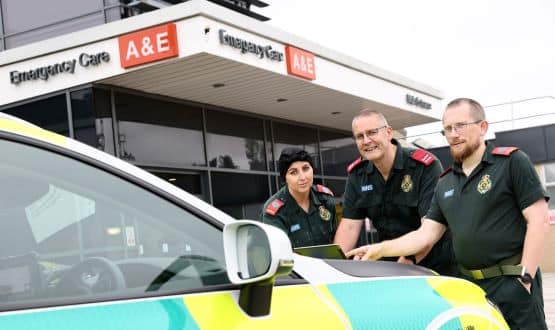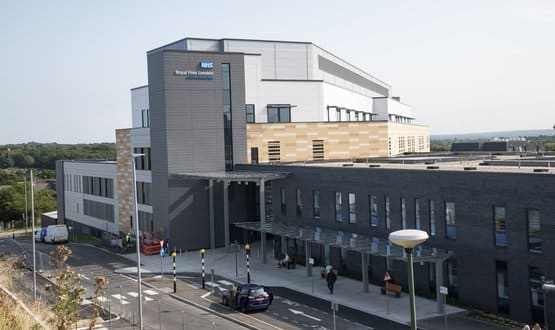Each acute GDE trust will receive £10 million – Swindells
- 10 July 2017

Acute global digital exemplar (GDE) trusts will be receiving £10 million each, according to a NHS England director.
Matthew Swindells, NHS England’s national director for operations and information, told Digital Health News at iLinks conference on 5 July, that the multi-million pound payments will be given out in phases.
“The acute GDEs have got £10 million each and payments to them is phased.”
“Some money up front, money when they hit a milestone, and there’s some money is held back until they actually hit the specification of the GDE.”
The GDE programme is NHS England’s flagship digital initiative and aims to support the most digitally advanced trusts, and in September £100 million was allocated for 10 to 16 selected trusts to have up to £10 million each.
However, an NHS England spokesman confirmed on Thursday that the total funding pot had risen to £160 million.
Swindells was speaking in Liverpool at the seventh iLinks conference, which promotes digital health across the region, which is known for being digitally advanced. The area has the highest concentration of GDEs in the country, with four in the region.
There have been long delays for the 16 acute GDE trusts in receiving this central funding, which was due to arrive in November last year.
However, it is only last month that some acute trusts have been able to begin drawing down the money for their digital ambitions.
Swindells told Digital Health News that the delay to the funding release has been frustrating.
“It’s been frustrating but equally we’re spending a lot of tax payer’s money and it’s our responsibility at least to demonstrate to the Treasury, that the things that the money was allocated for in the Paperless 2020 programme, we are fully living up to and this is an appropriate way of spending it.”
“Bureaucracy is always frustrating but generally it runs quicker if you do it well.”
The GDE trusts are also expected to partner with fast follower trusts. These organisations will receive a smaller sum of central funding, and will imitate the exemplar’s digital plans.
It was announced in February that NHS England plans to give 20 fast followers £5 million each.
An NHS England spokesman could not confirm the date of the fast followers money’s release on Thursday.
The seven selected mental health GDEs are due to receive up to £5 million each.
Paul Rice, head of technology strategy at NHS England, said at an event last week that the mental health GDE funding was still going through “due diligence”.
Swindells has been in the post at NHS England since spring last year, with his previous role as Cerner’s managing director for population health.
Reflecting on his year in post, he said his biggest success was aligning the technology agenda, with the NHS’ wider strategy, “I think there’s been a risk in the past where they’ve been on parallel tracks”.
Referring to iLinks having four chief executives as keynotes, Swindells said that’s a “huge step forward”.
“Because the success of these programmes is almost entirely dependent on senior leadership and clinical ownership of the projects.”
The GDE programme aligns closely with Robert Wachter’s recommendations made in the Wachter Report.
Commissioned by health secretary Jeremy Hunt, Wachter is a US ‘digital doctor’ who review NHS IT and suggested that trusts be divided up into different categories of digital maturity, with the most advanced given money first.
Wachter also said the Paperless 2020 deadline should be extended out to 2023. The government has yet to formally respond to the review, published in September last year.
Swindells said, “I think the Secretary of State when he accepted the Wachter review accepted that the financial allocation wasn’t enough for us to take the whole of the NHS paperless”.
“The view we are taking is, that’s true, but we’ve also been given a lot of money so before I go back to the Treasury and ask them for some more money, lets prove we can spend the money we’ve got wisely.”
He said that if the GDEs go well, the funding conversation is much easier. “So I’m not going back with my hand held out, until I can actually prove that we’ve succeeded”, he said.




